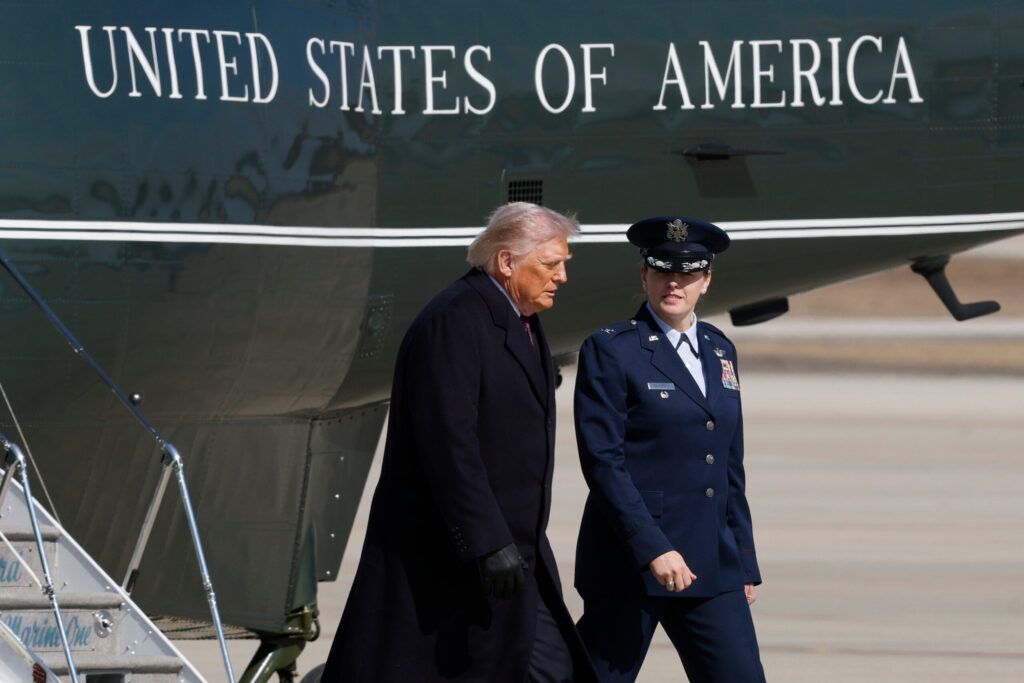Director leaves governor’s office to help Armstrong opponent | A LOOK BACK

Forty Years Ago This Week: In a surprising announcement, Gov. Dick Lamm’s talented 29-year-old legislative director, Mark Grueskin, announced that he would be stepping down from his position, effective Jan. 1, to manage Carlos Lucero’s campaign to unseat Republican Sen. Bill Armstrong.
In 1976, Grueskin had managed Frank Evan’s primary campaign for the 3rd Congressional District and in 1982 he oversaw Lamm’s reelection campaign in southern Colorado. Grueskin also practiced law in Washington D.C. in Democratic National Committee Chairman Bob Strauss’s firm.
Grueskin said he’d only known Lucero for about a month but that the Alamosa attorney immediately impressed him.
“It will take a bright individual and any Democrat who runs against Bill Armstrong must be substantive and issue oriented,” Grueskin said. “Carlos is good at debating, and his training as a trial lawyer suits him well.”
Grueskin told The Colorado Statesman that his work for Lucero didn’t mean that he held anything against Lt. Gov. Nancy Dick, also a candidate for the Democratic nomination for U.S. Senate.
“I like Nancy and have a lot of regard for her, and none of that is diminished,” Grueskin said.
Meanwhile, the third Democratic candidate to jump into the U.S. Senate race, Steve Leatherman, told The Statesman that he wanted to discuss a few issues with Dick, specifically nuclear arms.
Leatherman said that he’d written Dick a letter suggested a debate at Ernie’s Restaurant in Denver. But Leatherman told reporters that Timber Dick, Nancy’s son and campaign manager, said that the lieutenant governor, as much as she wanted to discuss the issues, would be out of town.
Thirty Years Ago: Denver Mayor Wellington Webb announced at a news conference that Denver International Airport would officially open for business on March 9, 1994.
In a Denver City Council meeting the week prior, several councilmembers had sported buttons reading “No Change Orders.”
“We were always told it was on time, on budget,” Ramona Martinez told Webb. “You told us, ‘No more change orders.’ We go through this every single week. We agreed to go along with this. We believed it. How much is it going to cost us?”
Martinez particularly criticized change orders brought for City Council approval, only to discover that the work had already started, or was even well underway.
Webb said that DIA would be 90% operational, functioning and fully tested by March 2 and he had opted for an extra week, which had been recommended by DIA’s construction team.
Earlier in the year Webb had announced that DIA would be ready on Dec. 19, but, as the months went on, it had become abundantly clear that the date was not realistic. City officials had outlined project costs to the media, predicted at $3.1 billion, exceeding the original estimate by $44 million.
The first bond payment for the airport was due January 1994, amounting to nearly $40 million. Airlines would pay nearly three quarters of the bond payment over the course of seven years, while the city of Denver would pay the difference, using profits generated while Stapleton Airport remained open.
“We’re not robbing Peter to pay Paul,” said Vicki Braunagel, Denver’s deputy director for aviation administration and formerly the airport’s chief legal counsel.
Webb likened the payment plan as a family who had several different types of saving accounts or stocks, but which were still “all part of the same family finances.”
“You have a variety of different funds for your family account,” said Webb. “You decide if you can buy a house or a car and make some decision on that financing. You can draw on some of those funds and get what you feel is necessary to meet your needs.”
Rachael Wright is the author of the Captain Savva Mystery series, with degrees in Political Science and History from Colorado Mesa University, and is a contributing writer to Colorado Politics and The Gazette.














